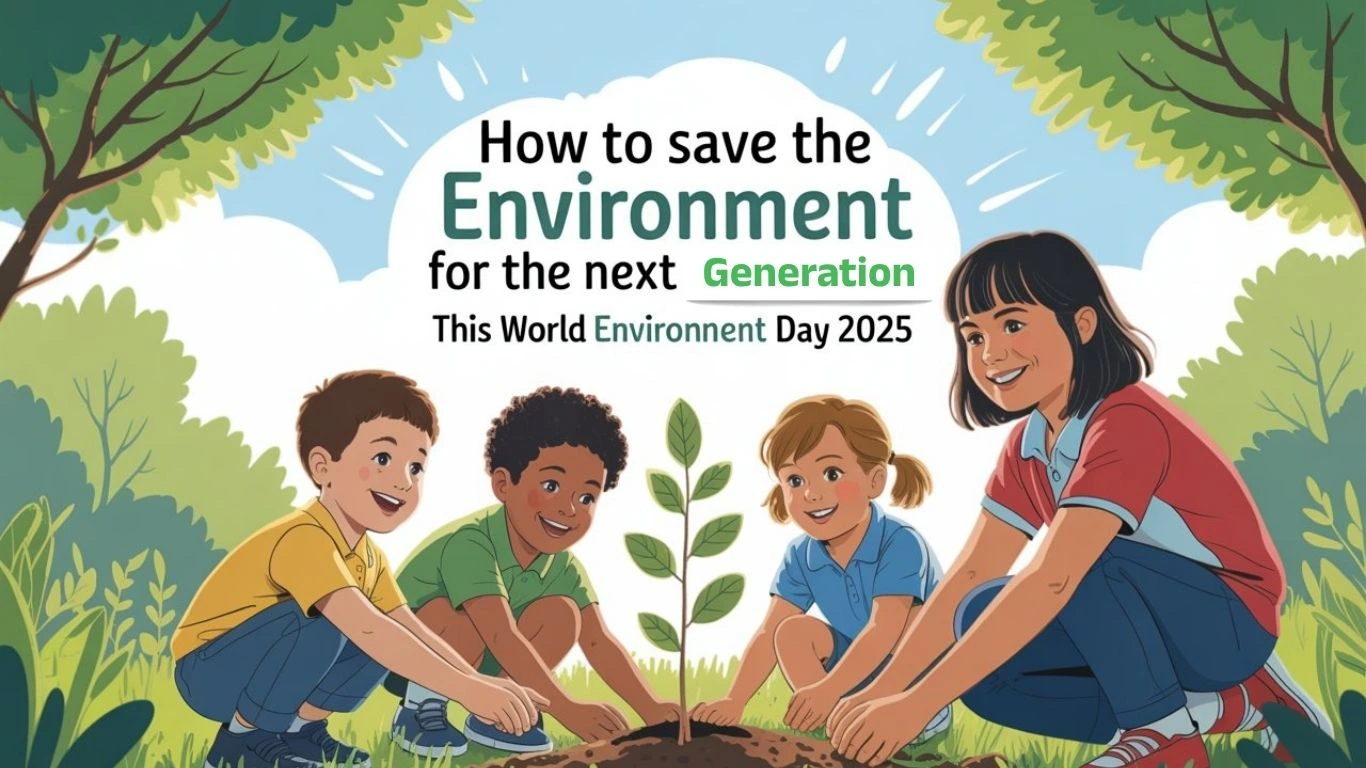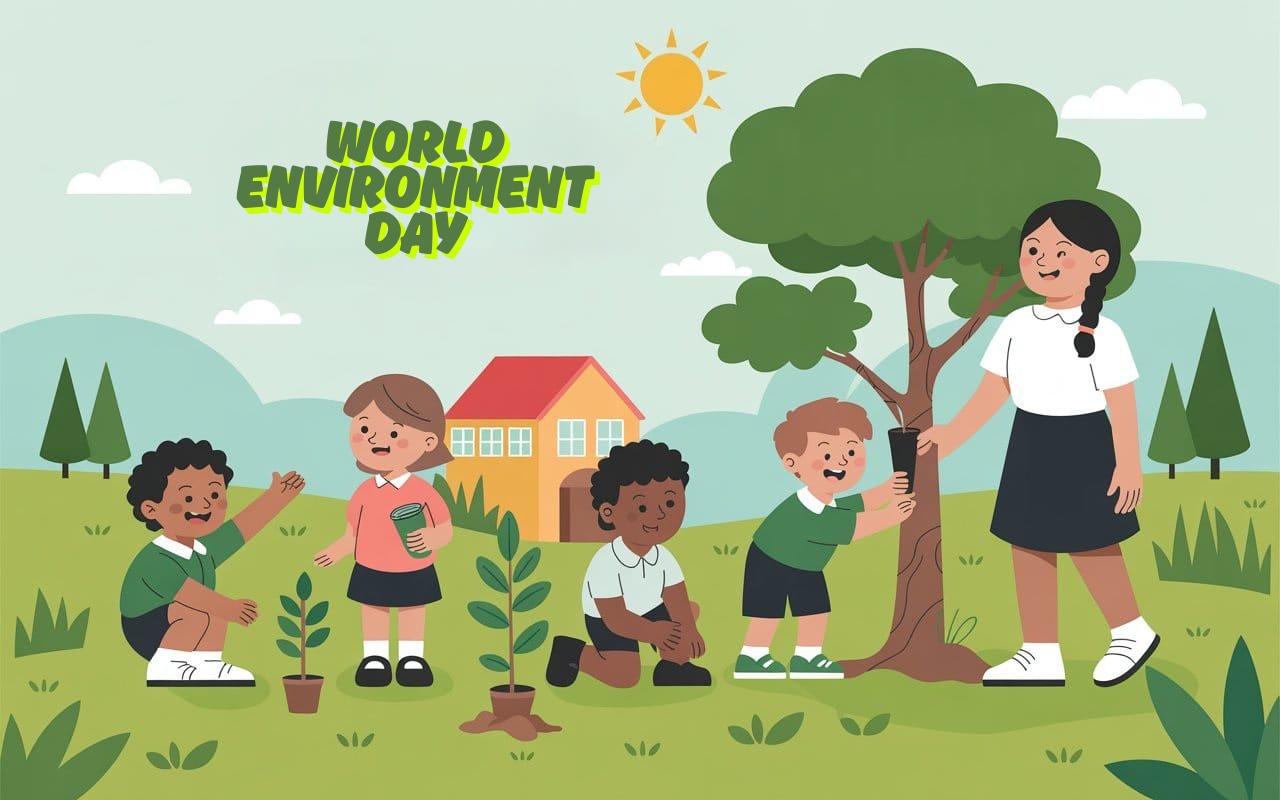How to Save the Environment for the Next Generation This World Environment Day 2025




World Environment Day is celebrated every year on June 5. In 2025, the theme is “Ending Plastic Pollution” according to the official UNEP campaign site. This is an important topic for children to learn about.
Schools can use this day to help students understand how plastic harms our planet and what we can do to stop it.

Children are the future. If we teach them how to care for the environment today, they will grow up to protect it tomorrow. Schools play a big role in this. They can make learning fun and help children take action through simple activities.
Kids are quick learners. When they see something is wrong, they want to fix it. Teaching them about plastic pollution, waste, and nature helps them become more responsible. These lessons also stay with them as they grow up.
Some easy and fun activities that schools can do with students on World Environment Day 2025. These ideas work for both primary and secondary students and can be done in classrooms, school grounds, or even online.
Ask students and teachers to avoid single-use plastic for one day or one week.
They can stop using plastic bottles, bags, and straws.
Keep a count of how much plastic was avoided and display it on the school board.
Later, talk about better alternatives.
Hold a small workshop where students use old plastic bottles or containers to make useful items like planters, bird feeders, or simple art.
Run a contest for the most creative idea.
Display the best projects around the school.
Take students outside for a supervised litter pick.
After collecting the waste, sort it and see what type of plastic is most common.
Use this to start a class talk about how to reduce that type of plastic.
Let students create posters, write essays, or give short speeches on topics like:
Invite someone who works in the field of environment or pollution control.
If that is not possible, show a video from a trusted source.
Later, have a classroom talk or debate like: “Should single-use plastic be banned in our city?”
Ask students to come up with their small ideas to reduce plastic use.
Let them present their thoughts to the class.
Connect with other schools for a virtual session to share ideas.
Take part in nature by planting trees or making seed balls.
Use old bottles or boxes as planters to stay in line with the theme.
This helps students understand how nature balances pollution.
Use recycled materials to build small insect hotels or a model rainforest.
Talk about why animals and insects are affected by plastic waste.
Let students see how every part of nature is connected.
Ask students to collect data about how much plastic their class uses in a week.
Make simple bar graphs or pie charts to show this.
Discuss ways to reduce those numbers.
Have a creative session where kids write short poems using words like “EARTH” or “PLASTIC”.
Or let them tell a short story about how a child helped save the environment.
World Environment Day is a good start, but the work should continue.
Schools can:
Schools can also register their events on the official World Environment Day website.
This way, students become part of a global movement.
On this World Environment Day 2025, let us give children a chance to learn, create, and take action. Activities like plastic-free challenges, upcycling workshops, planting trees, and writing stories are simple, yet powerful. They help kids understand how their small steps can protect the planet.
If you are a teacher, school leader, or parent, take the first step.
Let students be part of the global movement to end plastic pollution.
You can even register your event on the official World Environment Day website to show your support.
At Interval Learning, we always remind students that caring for the environment starts with small habits. One simple yet powerful step is to keep your study desk and surroundings clean before and after tuition.
This not only builds discipline but also teaches responsibility towards shared spaces. On this World Environment Day, let’s continue this practice and take one step closer to a cleaner, greener future.
The theme is “Ending Plastic Pollution”. It focuses on reducing plastic waste and finding better alternatives.
Teaching children at a young age builds good habits. They grow up more responsible and aware of how their actions affect the planet.
Yes. Most of the activities are simple and fun. They can be changed based on the age group.
You can organize online contests, discussions, video screenings, and home-based eco-projects like making planters or writing poems.
Schools shape young minds. By teaching eco-friendly habits, they help students become thoughtful and active citizens.